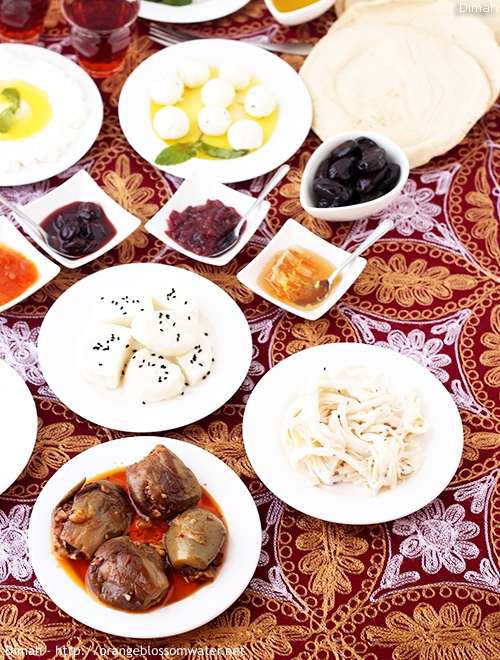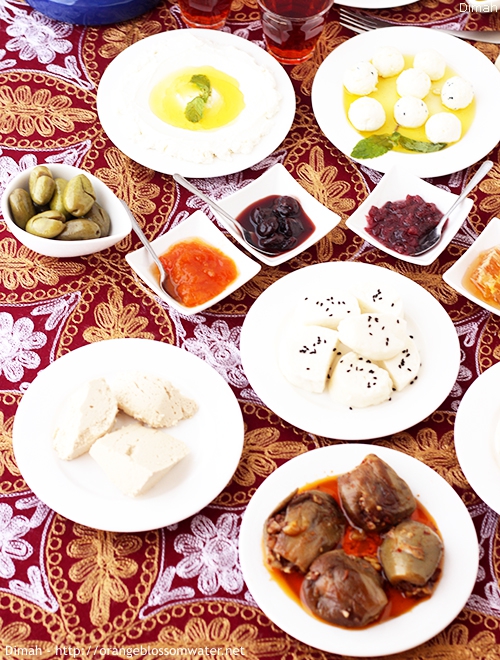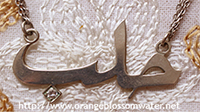Ramadan, Suhour – 2017
June 19th, 2017
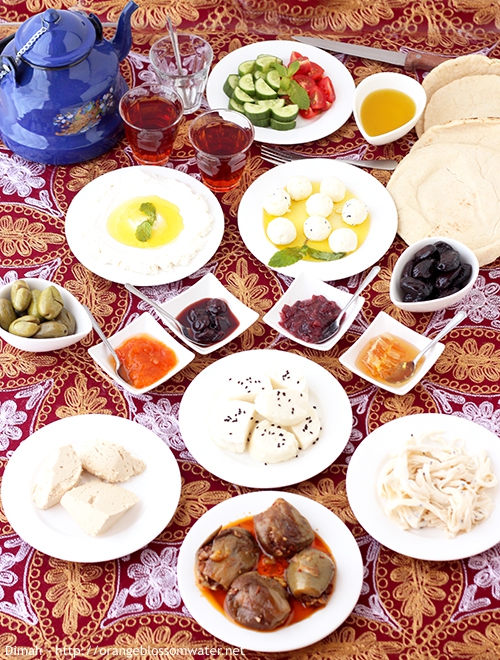
Suhour and Iftar are two elements of Ramadan that have great significance to Muslims.
Suhour is an Islamic term referring to the meal consumed early in the morning by Muslims before fasting, before dawn during or outside the Islamic month of Ramadan. The meal is eaten before fajr prayer. Suhour as the morning meal is matched by iftar as the evening meal, during Ramadan, replacing the traditional three meals a day (breakfast, lunch and dinner), although in some places dinner is also consumed after Iftar later during the night. Being the last meal eaten by Muslims before fasting from dawn to sunset during the month of Ramadan, suhour is regarded by Islamic traditions as a benefit of the blessings in that it allows the person fasting to avoid the crankiness or the weakness caused by the fast. According to a hadith, The Prophet Muhammad said “take suhour as there is a blessing in it”.
In Syria, Suhuor consists of dishes which are usually served for breakfast in regular days. Makdous Al-Bathenjan, Jebneh (Cheeses), Halaweh Tehiniyeh, Jams (if Ramadan in summer like these days so mainly the jams are: apricot jam, cherry jam, rose petal jam, strawberry jam. And if Ramadan in winter so mainly the jams are: eggplant jam, and pumpkin jam), Honey, Dibs w Tehineh (mixture of grape molasses with tahini), Laban (Yogurt), Labneh (Strained Yogurt), Olives, Cucumber and Tomatoes, and other food such as Foul Mdammas, boiled eggs, fried eggs, Manaqish, and Ma’arouk Ramadan are all suhoor table staples that we’re used to and love. Food is eaten with Arabic flat bread and served with tea.
More pictures with details:
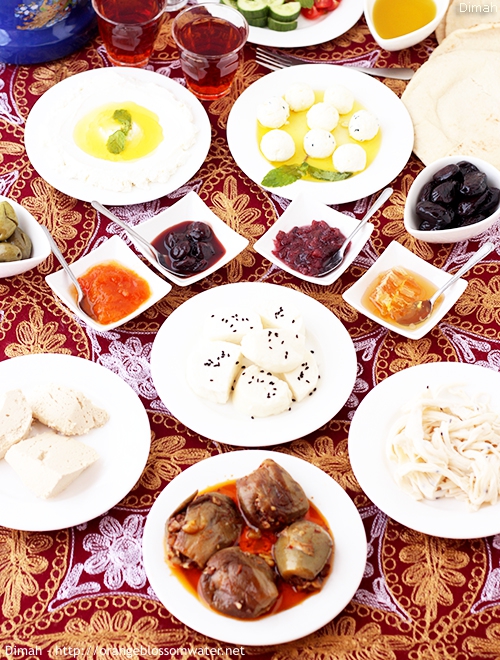
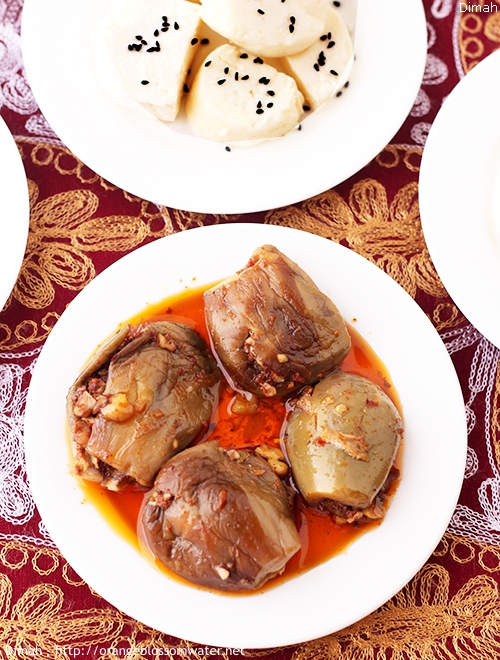
Above: Makdous Al-Bathenjan
Makdous Al-Bathenja is baby eggplants stuffed with a mixture of chopped walnuts and ground Aleppo pepper. A staple breakfast / snack dish, also served in Suhour.
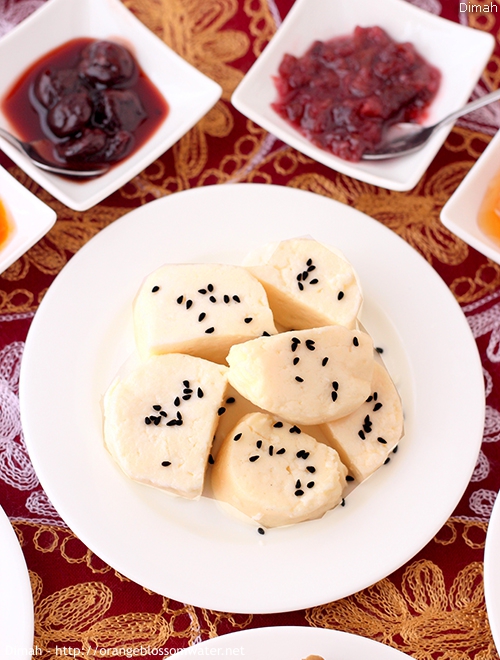
Above: Jebneh Bida Baladiyeh (Syrian White Cheese)
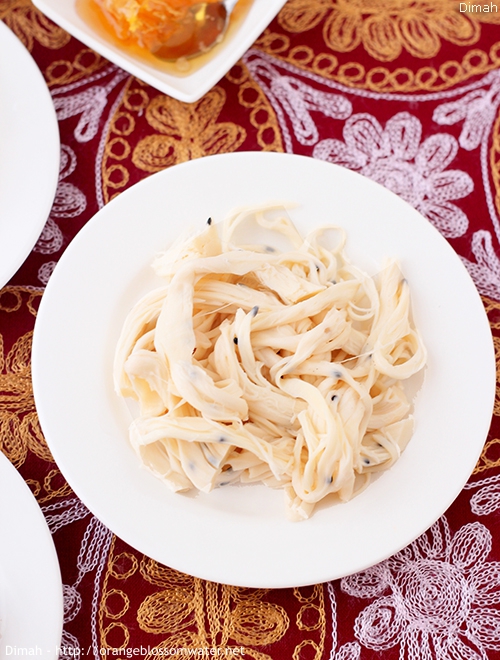
Above: Jebneh Mshallaleh (String Cheese)
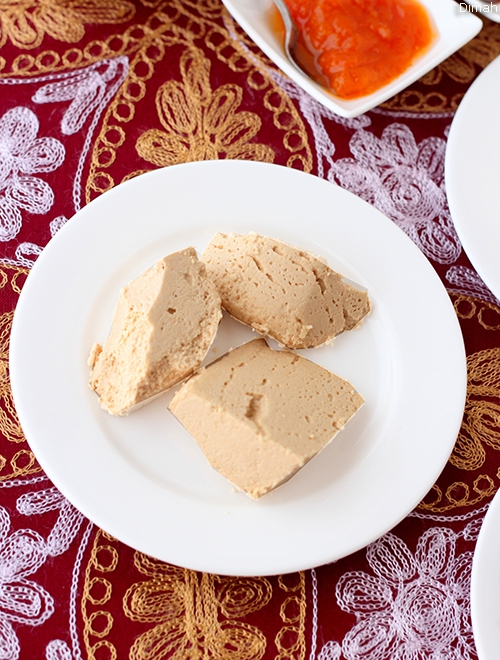
Above: Halaweh Tehiyniyeh
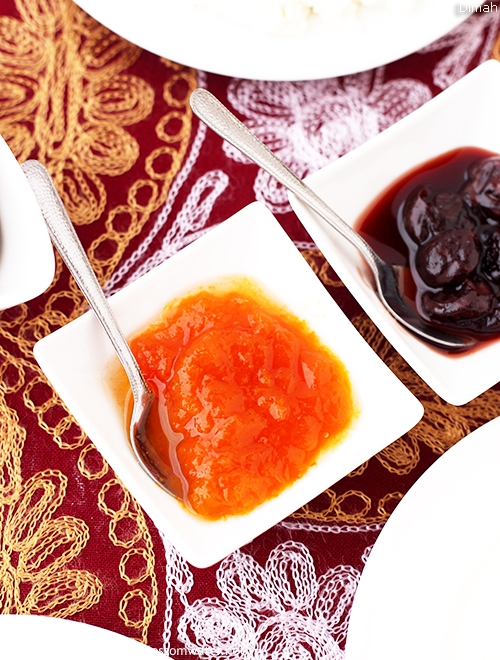
Above: Mrabba Al-Mshmush
Mrabba Al-Mshmush (Homemade Apricot Jam). Syrians often take advantage of the sun’s rays to finish cooking their jams. The jams matured by being left in the sun keep longer and never crystallize, a frequent hazard of jam making. In Dubai the humidity is high, therefor I can’t be prepare jam under the sun. Jam is served with cheese.
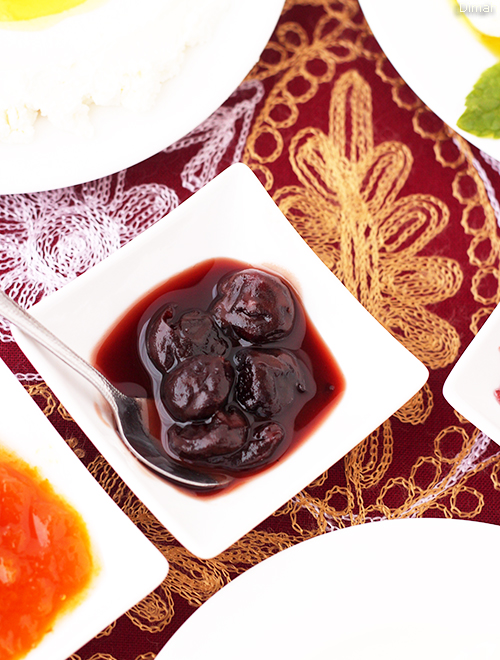
Above: Mrabba Al-Karaz
Mrabba Al-Karaz (Cherry Jam). Jam is served with cheese.
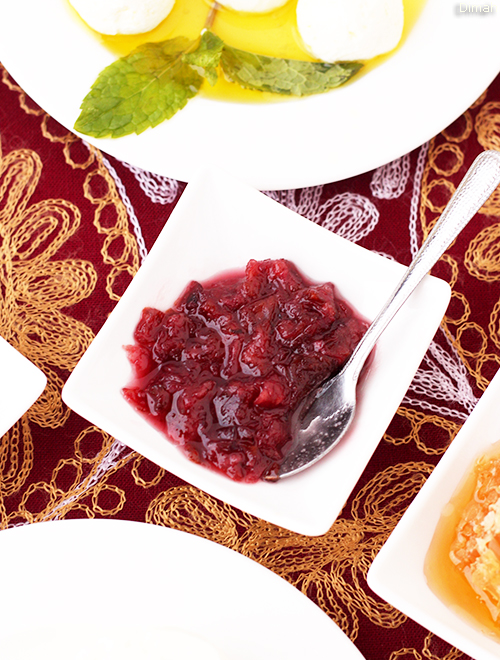
Above: Mrabba Al-Ward
Mrabba Al-Ward (Rose Petal Jam), famous in Aleppo made of Damask Rose Petals (ورد الجوري السبيعي), jam is served with cheese (Jebneh Mshallaleh (Syrian string cheese) or Jebneh Biada Baladiyeh).
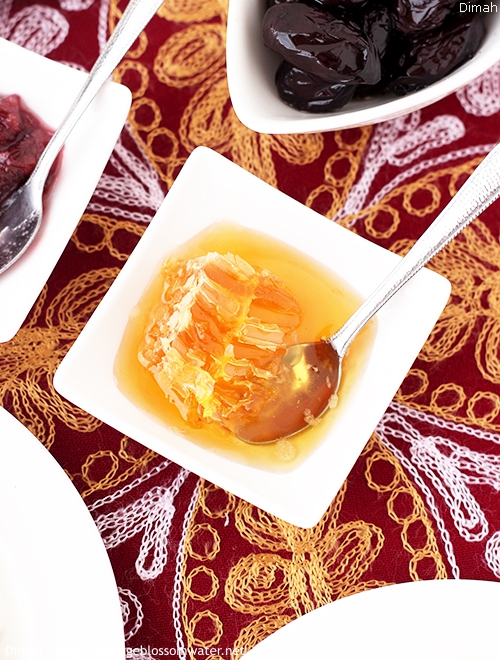
Above: Honey
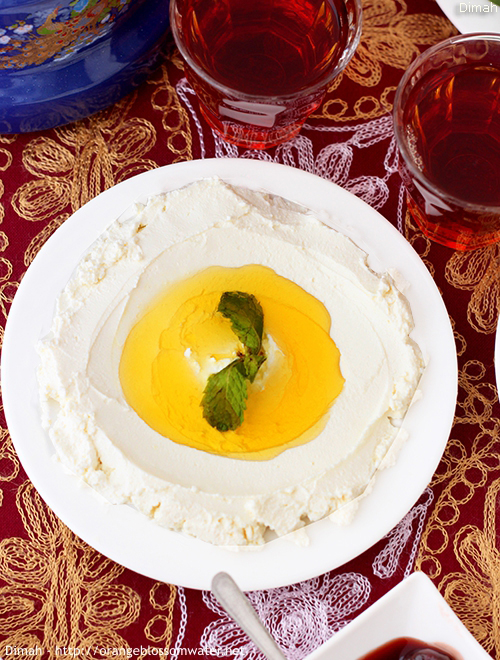
Above: Laban (Yogurt)
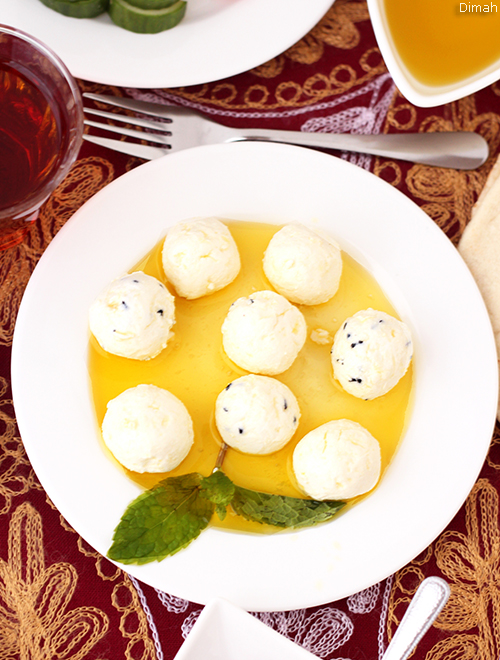
Above: Labneh (Strained Yogurt)
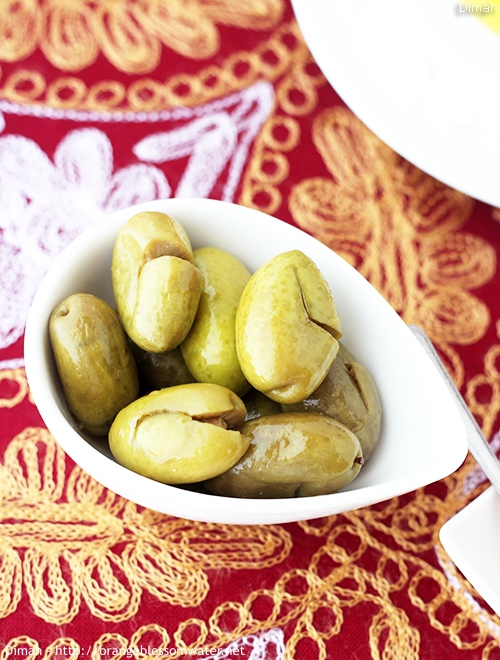
Above: Zeitoun Akhdar (Syrian Green Olives)
I’ll publish a post on how to crack green olives and store them, plus two recipes for delicious Syrian green olives salad.
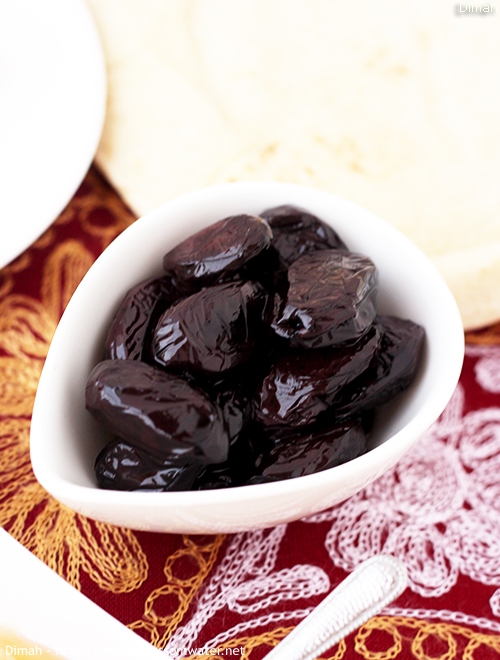
Above: ‘Atoun (Syrian Pressed Black Olives) عطون
I’ll publish a post on how to press black olives and store them.
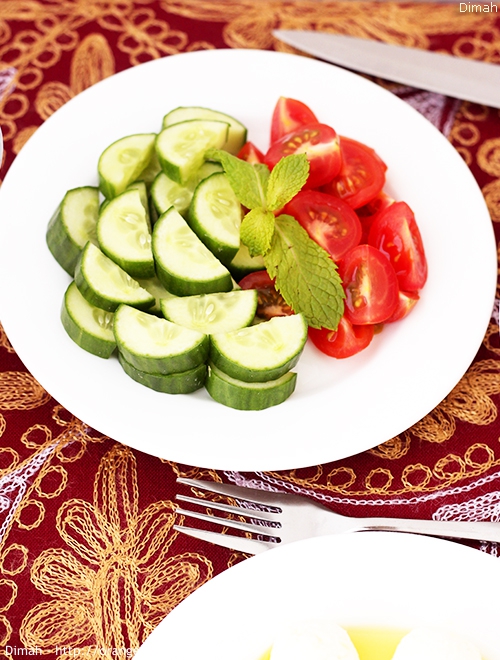
Above: Cucumber and tomatoes
